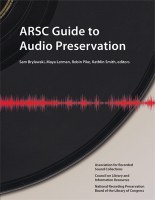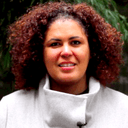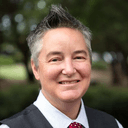
Number 105 • May/June 2015
ISSN 1944-7639 (online version)
Contents
Technology and the Weave of Cultural Memory, by Chuck Henry
Fourteen Awarded CLIR Postdoctoral Fellowships
CLIR Receives Mellon Grants for Operations, Postdoctoral Fellowships for Medieval Studies
New Publication Offers Practical Guidance on Audio Preservation
Now Available, Getting Found: SEO Cookbook
2015 DLF Forum Keynote Speakers Announced
Forthcoming Publications
CLIR Issues is produced in electronic format only. To receive the newsletter electronically, please sign up at https://www.clir.orgpubs/issues/signup.html. Content is not copyrighted and can be freely distributed.
Technology and the Weave of Cultural Memory
—By Chuck Henry
In May this year a remarkable, unprecedented summit meeting took place in Cairo, Egypt. Bluntly titled, “Culture Under Threat: the Security, Economic and Cultural Impact of Antiquities Theft in the Middle East,” the conference explored the implications of the recent surge in looting of cultural heritage objects of Middle Eastern and North African nations by terrorist groups such as ISIS, and the subsequent illicit sale of those objects to fund the savage wars in that region.
The destruction of statues, mosaics, and ancient artifacts, along with the burning of books and manuscripts, has been widely reported; videos of the pillaging and smashing of priceless museum collections are an important propaganda tool in the arsenal of the rogue armies. Yet, the black market for objects dating back to Neolithic times in the region is much less a public topic, and the summit sought in part to make this horrendous trafficking, and its connection to funding terrorism, better known and understood.
The attending ministers from the ten nations (Egypt, Lebanon, Syria, the United Arab Emirates, Qatar, Kuwait, Iraq, Oman, Libya, and Sudan) sought common ground on how collectively to address this assault on cultural heritage and staunch the illegal flow and sale that eventually provide funding for weapons, vehicles, explosives, and combat training that perpetuates a cycle of material loss and death. They were joined by agents of Interpol, the U.S. attorney in Manhattan who investigates and prosecutes illegal sales of antiquities, members of UNESCO, and representatives of nongovernmental organizations, such as CLIR, whose mission supports the preservation of and access to culture.
I was fortunate to give a presentation at the summit. Over the last year I have worked closely with the Antiquities Coalition, which, along with the Middle East Institute, sponsored and organized this conference. In the months leading up to the summit meeting, I wrote a couple of essays[1] focused on the opportunities of building a multinational digital library that would hold high-resolution images of the various countries’ cultural artifacts as well as detailed metadata. The essays were framed by two UNESCO conventions, written and adopted in 1970 and 1995 (the Unidroit Convention). These conventions call for inventories, catalogs, and other methods of record keeping to locate cultural objects and confirm their ownership and legal status. The inventories are to be shared internationally and consulted at the point of transfer or sale of an item of cultural or historical significance. The UNESCO conventions were developed before the florescence of digital technology, and challenges to the system of safeguards articulated by the conventions are numerous: paper based inventories are fragile; they are prone to loss if not backed up by many copies, making the updating of the multiple documents cumbersome; they are subject to forgery and “antiquities laundering.” Inventories that are kept at a central location are difficult to share across borders and difficult to compare and analyze with information in other regionally located inventories.
My presentation, based on these essays, called for updating the UNESCO conventions into the digital era, specifically creating digital libraries that would serve as sophisticated inventories, easily searched and available on mobile devices like those used at border crossings and customs. Noting that the advanced technology used by ISIS and other marauding militias is adept at instigating divisive responses and producing an alienating outrage, the prospect of a regional, coordinated digital library that would employ technology to unite us would be a compelling counter to the technologies used to rend us. A digital library could electronically weave together many cultures over thousands of years, making those objects more readily identifiable, easier to track, and help to impede looting and the illicit selling of the Middle East’s cultural memory.
Conclusions presented to the ministers included the recommendation that each nation in the Middle East currently under threat of war or political turmoil invest in the construction and maintenance of a digital library. Each library should be a compelling, dynamic exhibit of the objects and artifacts of significant cultural and historical importance of the nation; and a means by which to track the provenance, history, transaction records, and legal status of all cultural objects in its database. The libraries should be designed in cooperation and collaboration with the other digital libraries in the region. Through international support, the digital libraries of the Middle East will incorporate the most advanced and cost-effective tools and applications available, and serve as a model for national and international cooperation. Over time, these coordinated libraries can serve as a means to train skilled workers, create new jobs, strengthen the economy, and educate a wide audience on the importance and sophistication of Middle Eastern cultures. By so doing, they would instill respect for and deeper understanding of this priceless record of our humanity.
During the course of the two-day summit, many noteworthy aspects came to light; I will cite three. The first was how the powerful motivation of a shared concern for the preservation and access of the collective cultural heritage transcended individual alliances, national politics, religious factions, and ethnic background. The difficulties of conducting business and developing policies in this region are well known; many meetings end with represented factions unable to mediate their differences or compromise, and the level of frustration is high. That all invited countries accepted the invitation and sent high-level ministers to explore, discuss, and agree to a new alliance in two days was unprecedented.
Secondly, the ability of two very small, not-for-profit American organizations to successfully engage with the governments of the region and provide leadership on such a grand scale was also without precedent. This conference established the potential of organizations like CLIR to assume a more pivotal role in global issues and work in troubled regions of the world at a national level of engagement.
The third exceptional aspect was the readiness for those of us representing the United States to admit our complicity in the looting and illicit sale of Middle Eastern artifacts. America is categorized as a “major demand nation”: many, if not most, of the materials looted in the Middle East are eventually offered for sale at boutique galleries in our larger cities. The journey from violent theft to velvet-lined display cases involves smuggling and often other criminal acts such as forging documents and bribing customs agents, secretive shipping venues, and unscrupulous art dealers. In this respect, the American organizers never appeared to instruct or unilaterally solve the challenges facing our colleagues in the Middle East, but rather came to acknowledge our culpability and to contribute to a coherent, participatory response.
By all accounts, the summit was a great success. The culminating action was the signing of the Cairo Declaration by all ten nations. The goals articulated in the Declaration include emphasizing the linkage between antiquities looting and terrorist finance, and the need for an awareness campaign to stop the purchase of “blood antiquities.” The Cairo Declaration outlines a regional action plan that the countries will take together, including: establishing a high-level MENA (Middle East and North Africa) task force that will coordinate regional and international efforts against cultural racketeering; creating an international advisory council that will provide support to the task force; initiating negotiations for a regional cultural memorandum of understanding with demand countries; launching domestic and international campaigns against looting, trafficking, and the black market trade; and establishing an independent center to combat antiquities laundering.
There was also wide agreement that digital libraries offer a reasonable, sustainable means to help secure the cultural heritage of the region, unite the countries most threatened by looting, and over time serve as an important mechanism for international cooperation. CLIR will continue to work on behalf of these admirable goals.
Fourteen Awarded CLIR Postdoctoral Fellowships
CLIR has named five recipients of CLIR Postdoctoral Fellowships in Academic Libraries, five recipients of CLIR/DLF Postdoctoral Fellowships in Data Curation for Visual Studies, and four recipients of CLIR/DLF Postdoctoral Fellowships in Data Curation for the Sciences and Social Sciences.
Fellowships are awarded to individuals who received a PhD degree within the last five years in the humanities, social sciences, or sciences. Twenty-two fellows from the previous cohort, including six Postdoctoral Fellows in Data Curation for the Sciences and Social Sciences and four Postdoctoral Fellows in Data Curation for Early Modern Studies, are spending a second year at their host institutions.
The CLIR/DLF Postdoctoral Fellowships in Data Curation for Visual Studies were launched this year with funding from The Andrew W. Mellon Foundation. As a field, Visual Studies calls attention to the material, cultural, and historical contexts of all images, the relationship of the visual object to the viewer, and the act of seeing from a historical and cultural perspective. Scholars in this field analyze and interpret static images, as well as film and video resources, including oral histories, performance art, and mass media. Through this program, CLIR/DLF seeks to raise awareness and build capacity for sound data management practice throughout the academy.
All Postdoctoral Fellows will begin their program at an orientation seminar at Bryn Mawr College from July 26 to August 2, 2015. The seminar will introduce fellows to issues facing twenty-first-century libraries and provide an opportunity for fellows to meet others in their cohort who can share experiences and information. Portions of the seminar are devoted to discussing data curation and management.
CLIR administers the fellowship program in collaboration with academic institutions as a means of recruiting talent into the library profession. Information on the fellowships is available at https://www.clir.orgfellowships/postdoc.
New Fellows
Reid Boehm
PhD Information Science, University of Tennessee, Knoxville
Host: University of Notre Dame
Jacquelyn Clements
PhD History of Art, Johns Hopkins University
Host: University of Toronto
Melissa Dinsman
PhD Literature, University of Notre Dame
Host: University of Notre Dame
Carrie Johnston
PhD English and American Literature, Southern Methodist University
Host: Bucknell University
Dimitrios Latsis
PhD Film Studies, University of Iowa
Host: Internet Archive
Chreston Miller
PhD Computer Science and Applications, Virginia Tech
Host: Virginia Tech
Kyle Parry
PhD Film and Visual Studies, Harvard University
Host: University of Rochester
Fernando Rios
PhD Geography, University of Buffalo, SUNY
Host: Johns Hopkins University
Elizabeth Rodrigues
PhD English, University of Michigan
Host: Temple University
Edward Triplett
PhD History of Art and Architecture, University of Virginia
Host: Duke University
Martin Tsang
PhD Anthropology, Florida International University
Host: University of Miami
Mary Lindsay Van Tine
PhD English and Comparative Literature, Columbia University
Host: Swarthmore College/University of Pennsylvania
Leila Walker
PhD English, City University of New York
Host: St. Lawrence University
Qian Zhang
PhD Physical Oceanography, Louisiana State University
Host: University of Illinois at Urbana-Champaign
CLIR Receives Mellon Grants for Operations, Postdoctoral Fellowships in Data Curation for Medieval Studies
CLIR has received two new grants from The Andrew W. Mellon Foundation. The first is a 24-month, $1.5 million grant to support CLIR’s general operations. The second awards $900,000 to continue the Postdoctoral Fellowships in Data Curation for Medieval Studies.
The grant provides core support that allows CLIR to undertake a range of activity: fostering cross-disciplinary thought leadership through its publications, meetings, and annual DLF Forum; evolving its tactical programs, including Digitizing Hidden Special Collections and Archives, the Digital Library Federation, and Committee on Coherence at Scale; and expanding professional development opportunities, including the Postdoctoral Fellowship Program, Mellon Dissertation Fellowships, and Leading Change Institute.
“The Foundation’s grant affirms CLIR’s pivotal role in higher education today and significantly helps to sustain us, providing the Council with opportunities to recruit the finest staff who in turn manage and design the exemplary programs and projects in service to our growing constituency,” said CLIR President Chuck Henry. “I am deeply grateful for the continued funding from the Mellon Foundation in support of our operations.”
The Postdoctoral Fellowships in Data Curation for Medieval Studies grant will support a cohort of five fellows for two years at five institutions of higher learning, starting in July 2016.
The fellowships will build on the success of the 2013-2015 cohort of fellows in data curation for Medieval Studies. The second postdoctoral cohort will be integrated into CLIR’s 2016 Postdoctoral Program, including Postdoctoral Fellows in Academic Libraries; Postdoctoral Fellows in Data Curation for the Sciences and Social Sciences, who are supported by the Sloan Foundation; and Postdoctoral Fellows in Data Curation for Visual Studies, supported by the Mellon Foundation.
“The renewal of the data curation fellowship for Medieval Studies presents CLIR with an exciting prospect: extending a program in one of the most robust, vibrant, and productive disciplines engaged today in digital humanities research,” said Henry. “With this grant we can more thoroughly assess the needs of the Medieval Studies community, undertake more extensive research on standards and protocols, and creatively build upon the work of the current community of fellows.”
CLIR launched its Postdoctoral Fellowship Program in 2004. To date, it has educated and placed 116 fellows at 53 host institutions across the United States and Canada.
CLIR will post fellowship openings in October 2015 at https://www.clir.orgfellowships/postdoc. The application deadline will be December 31, 2015, and awards will be announced in June 2016.
 New Publication Offers Practical Guidance on Audio Preservation
New Publication Offers Practical Guidance on Audio Preservation
CLIR, in partnership with the Association for Recorded Sound Collections (ARSC) and the National Recording Preservation Board (NRPB) of the Library of Congress, has published a basic guide to audio preservation.
The ARSC Guide to Audio Preservation is an introduction to caring for and preserving audio collections, specifically for individuals and institutions that have recorded sound collections but lack the expertise in one or more areas to preserve them.
Our audio legacy is at serious risk because of media deterioration, technological obsolescence, and, often, lack of accessibility. This legacy is remarkable in its diversity, ranging from wax cylinders of extinct Native American languages to tapes of local radio broadcasts, naturalists’ and ethnographers’ field recordings, small independent record company releases, and much more. These recordings are held not by a few large organizations, but by thousands of large and small institutions, and by individuals. The publishers hope that this guide will support and encourage efforts at all institutions to implement best practices to help meet the urgent challenge of audio preservation.
Nine chapters, contributed by a range of experts, cover audio conservation and preservation, recorded sound formats and their associated risks, appraisal, related copyright issues, and disaster preparedness. The guide also offers advice on making informed decisions about digitization, as well as strategies for managing digital content. An appendix to the guide focuses on fair use and sound recordings.
The ARSC Guide to Audio Preservation is available electronically at https://www.clir.orgpubs/reports/pub164. Print copies are available for ordering through CLIR’s website, for $30 plus shipping and handling.
Now Available, Getting Found: SEO Cookbook
 At a time when Internet search engines have become the default discovery layer for most users, libraries need to report that their websites and digital repositories are discoverable through those search engines as well. The Getting Found (GF) Cookbook, by Patrick O’Brien and Kenning Arlitsch, provides a step-by-step video guide to help libraries measure and monitor the search engine optimization (SEO) performance of their digital repositories. The Cookbook includes everything necessary to implement a preconfigured Google Analytics dashboard that continuously monitors SEO performance metrics relevant to digital repositories.
At a time when Internet search engines have become the default discovery layer for most users, libraries need to report that their websites and digital repositories are discoverable through those search engines as well. The Getting Found (GF) Cookbook, by Patrick O’Brien and Kenning Arlitsch, provides a step-by-step video guide to help libraries measure and monitor the search engine optimization (SEO) performance of their digital repositories. The Cookbook includes everything necessary to implement a preconfigured Google Analytics dashboard that continuously monitors SEO performance metrics relevant to digital repositories.
Patrick O’Brien is semantic web research director and Kenning Arlitsch is dean of the library at Montana State University. The Cookbook, available at https://www.clir.orgpubs/reports/pub165, was supported by a grant from the Institute of Museum and Library Services.
2015 DLF Forum Keynote Speakers Announced
Safiya U. Noble, Cecily Walker, and Chris Bourg will be keynote speakers at the 2015 DLF Forum.
 Safiya U. Noble will open the Forum October 26 with a talk that draws on her work in critical race and information studies and socio-cultural informatics, “including feminist, historical and political-economic perspectives on computing platforms and software in the public interest.” Noble is assistant professor in the Department of Information Studies in the Graduate School of Education and Information Studies at UCLA, where she conducts research “at the intersection of culture and technology in the design and use of applications on the Internet.” She is the author or co-author of articles such as “Google Search: Hyper-visibility as a Means of Rendering Black Women and Girls Invisible,” “Race and Social Media,” and “Geographic Information Systems: a Critical Look at the Commercialization of Public Information,” as well as the forthcoming, “Social Justice as Topic and Tool: An Attempt to Transform a LIS Curriculum and Culture” in Library Quarterly. Among Noble’s recent talks is a TEDx presentation at UIUC, “In Pursuit of an Ethics of Information.”
Safiya U. Noble will open the Forum October 26 with a talk that draws on her work in critical race and information studies and socio-cultural informatics, “including feminist, historical and political-economic perspectives on computing platforms and software in the public interest.” Noble is assistant professor in the Department of Information Studies in the Graduate School of Education and Information Studies at UCLA, where she conducts research “at the intersection of culture and technology in the design and use of applications on the Internet.” She is the author or co-author of articles such as “Google Search: Hyper-visibility as a Means of Rendering Black Women and Girls Invisible,” “Race and Social Media,” and “Geographic Information Systems: a Critical Look at the Commercialization of Public Information,” as well as the forthcoming, “Social Justice as Topic and Tool: An Attempt to Transform a LIS Curriculum and Culture” in Library Quarterly. Among Noble’s recent talks is a TEDx presentation at UIUC, “In Pursuit of an Ethics of Information.”
Cecily Walker and Chris Bourg will jointly present the keynote for the DLF Forum Liberal Arts College Pre-Conference, October 25.
 Cecily Walker is Vancouver Public Library’s Assistant Manager for Community Digital Initiatives & eLearning, focusing on user experience, open data, social media, and the intersection of social issues, technology, and public librarianship. As she puts it: “It was my frustration with the way software was designed for the needs of programmers and highly technical users rather than the general public that led me to a career in user-centered design. It was my love of information, intellectual freedom, and service that pulled me back to librarianship.” Walker is a member of the editorial board of In the Library with the Lead Pipe and a recent host of #L1S, a tweet-chat for first-generation library professionals.
Cecily Walker is Vancouver Public Library’s Assistant Manager for Community Digital Initiatives & eLearning, focusing on user experience, open data, social media, and the intersection of social issues, technology, and public librarianship. As she puts it: “It was my frustration with the way software was designed for the needs of programmers and highly technical users rather than the general public that led me to a career in user-centered design. It was my love of information, intellectual freedom, and service that pulled me back to librarianship.” Walker is a member of the editorial board of In the Library with the Lead Pipe and a recent host of #L1S, a tweet-chat for first-generation library professionals.
 Chris Bourg is Director of Libraries at MIT, with oversight of the MIT Press and related initiatives. She comes to MIT after a distinguished career in public services at Stanford University Library and on the faculty of the United States Military Academy at West Point, where she taught courses in leadership and sociology. Bourg is author of the long-running “Feral Librarian” blog and a number of scholarly publications, including (with Bess Sadler) the recent code4lib journal article, “Feminism and the Future of Library Discovery.”
Chris Bourg is Director of Libraries at MIT, with oversight of the MIT Press and related initiatives. She comes to MIT after a distinguished career in public services at Stanford University Library and on the faculty of the United States Military Academy at West Point, where she taught courses in leadership and sociology. Bourg is author of the long-running “Feral Librarian” blog and a number of scholarly publications, including (with Bess Sadler) the recent code4lib journal article, “Feminism and the Future of Library Discovery.”
DLF’s Program Planning Committee received a record number of proposals for the 2015 Forum, more than doubling last year’s count. In the coming days, proposals will be open for one week of public voting; look for messages on the DLF listserv and in social media. Those interested in voting will be invited to review titles and abstracts, and assign scores based on their interest in seeing certain presentations as part of the 2015 Forum. The Program Planning Committee will use community input to inform its decisions about the conference program, which will be announced in August.
Forthcoming Publications
- The Once and Future Publishing Library, by Ann Okerson and Alex Holzman
- The CLIR Postdoctoral Fellowship Program and the Future of the Academy, John C. Maclachlan, Elizabeth A. Waraksa, and Christa Williford, eds.
- Building Expertise to Support Digital Scholarship: A Global Perspective, by Vivian Lewis, Lisa Spiro, Xuemao Wang, and Jon E. Cawthorne
